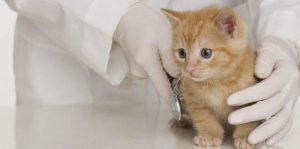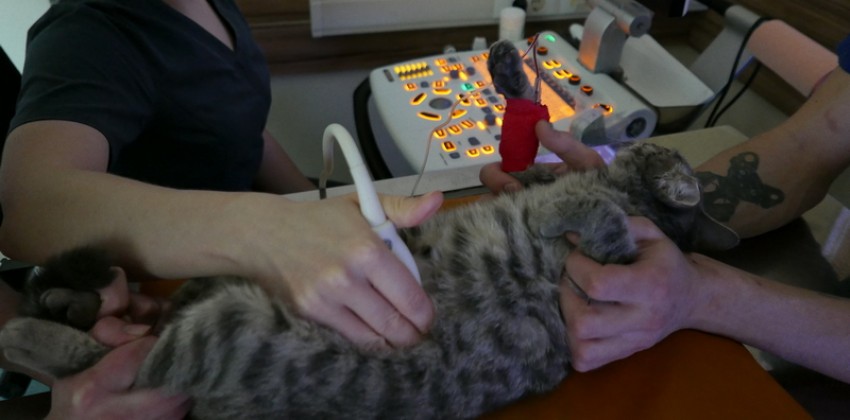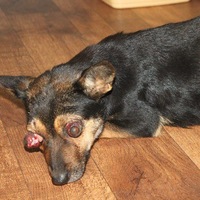Vaccinations kittens up to a year: the scheme, price and other issues
 You made an important decision and you got a kitten. It does not matter to preserve his health, you took him from a shelter for homeless animals, from friends or purchased in an elite nursery. All kittens need to perform typical procedures in order to maintain health in the most critical period of their life.
You made an important decision and you got a kitten. It does not matter to preserve his health, you took him from a shelter for homeless animals, from friends or purchased in an elite nursery. All kittens need to perform typical procedures in order to maintain health in the most critical period of their life.
In most cases, the vaccination scheme of a kitten will be the same, regardless of the kitten’s origin, but there may be changes in the choice of components of vaccines against which vaccination will be conducted. These changes primarily depend on the plans for the future life of the kitten (living only at home / possible visiting the street / participating in breeding).
Kitten first steps
There are several things you need to do to make sure your kitten is free from parasites and viruses:
First of all, you need to conduct a full and thorough examination of a kitten at a veterinary clinic. There are congenital diseases and diseases acquired in the first months of life. The sooner the treatment begins, the higher the chance of a speedy recovery and the cheaper the treatment will be. Vaccination makes sense to carry out only healthy kittens.
Secondly, make sure that the kitten was treated for worms and if not – to de-worming. The kitten could become infected with worms from the environment or from the mother. Treatment of worms can be carried out independently or in a veterinary clinic. Some of the worms of cats are potentially dangerous to humans! It is especially important to conduct regular deworming in the early period of a kitten’s life.
Thirdly, check the kitten for “retroviral” infections, such as feline AIDS (FIV cats immunodeficiency virus) and FelV viral leukemia. Like deworming, this test can be done at a veterinary clinic.
The first and second vaccinations kittens: table
It’s time to think about vaccination kitten
What vaccinations do kittens need?
There are 4 viruses for which every kitten or adult cat needs vaccination:
Calicivirus
Panleukopenia virus (distemper)
Herpesvirus (rintracheitis)
Rabies virus
From these diseases it is necessary to vaccinate every cat, regardless of her age and even if she spends her whole life in an apartment. Moreover, it is impossible to guarantee that the cat will never be on the street.
If your kitten will go out in the future (for example, a trip to the cottage), he is recommended vaccination against leukemia virus (FelV).
If it is planned to receive offspring from a kitten in a future, visit to cat shows then regular vaccination is necessary against the mandatory four infections, as well as against the leukemia virus and chlamydia.
Kitten vaccination schedule
Regardless of the selected components, the kitten vaccination scheme will be as follows:
At 8 weeks, the components required for each cat are herpesvirus, calicivirus and panleukopenia, and, if necessary, chlamydia and viral leukemia.
At 12 weeks – all the same, as well as rabies.
In 15 months and then annually – we repeat all the components that were made in 12 weeks.
What vaccine to choose for a kitten?
In the veterinary center Constellation apply several vaccines for kittens: Nobivak Triket Trio, Purevaks, Multifel, Fel-o-Wax, Feligen. Each of them has its advantages and disadvantages. Perhaps the best vaccine today is Purevaks. For several reasons:
The most modern of the Russian market
Components are selected under the lifestyle of cats: from 3 to 5 diseases in one dose (1 ml) of the vaccine
Produced in France – EU quality control
From 5 diseases of cats: herpesvirus, calicivirus, panleukopenia, chlamydia, viral leukemia cats + Rabizin to protect against rabies
Purevax RCPCh FelV
What to do if the kitten vaccination scheme is broken?
Since there are many options for violation of the scheme, the ideal option is to consult with a veterinarian. Of the most common violations of the vaccination schedule:
delayed vaccination (earlier or later);
unknown immune status of a kitten when it is not known whether the kitten was vaccinated earlier and if so, then what?
Will all of these vaccines be injected together or will it be 5-7 shots?
In 8 weeks – 1 injection, regardless of the selected number of infections
At 12 weeks and beyond – 1-2 injections, as a rabies vaccine may need to be administered separately.
What are the risks of a kitten after vaccination?
As well as as a result of any medical procedure, after vaccination a kitten may have undesirable reactions, such as:
Lethargy
Failure to feed
Temperature rise
Soreness at vaccine injection site
Encephalitis
Polyneuritis
Arthritis
Cramps
Behavioral change
Hair loss or wool color change at the injection site
Allergies (hypersensitivity) and immune reactions may include:
Inability to produce immunity after vaccine administration
Neoplasm at the injection site
Reactions caused by inappropriate or inappropriate vaccine administration



